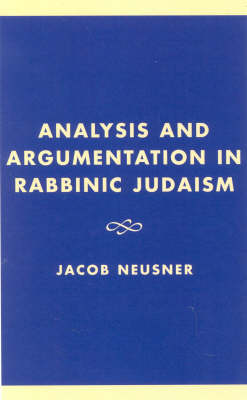Do ubiquitous modes of thought (types of analysis, types of argumentation) pervade the entire corpus of the Rabbinic writings of late antiquity and impart coherence to those diverse documents? Here are the results of a systematic probe of representative Halakhic and Aggadic documents in search of the answer to that question. The result is limited but one-sided: the answer is yes, they do. The inquiry proves urgent, because the bases for supposing the Rabbinic documents coalesce have diminished, and the differences between and among the respective documents have made their mark. The book asks whether, however diverse, all of the documents conform to a single, determinate program of [1] analysis and [2] argumentation. Do they raise in common a set of questions that are ubiquitous, and do they pursue a uniform inquiry, whatever the data subject to study? Further, does a single protocol of argumentation dictate the means by which analytical propositions are advanced and tested? If they do, then Rabbinic Judaism finds coherence in shared intellectual traits. These, then, would serve to define the foundations for the construction of all components into the Rabbinic system and structure.
- ISBN10 0761825274
- ISBN13 9780761825272
- Publish Date 29 June 2003
- Publish Status Out of Print
- Out of Print 27 January 2021
- Publish Country US
- Imprint University Press of America
- Format Hardcover
- Pages 294
- Language English
